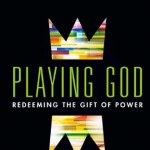Any reportage on American Evangelicals that cautions its audience not “to dismiss these people as… zealots who have surrendered their ability to think rationally” immediately stands apart from most religious journalism. So Tom Krattenmaker’s The Evangelicals You Don’t Know: Introducing the Next Generation of Christians is a welcome work by that standard alone.
Unsatisfied with the attitude that “not only insults these Christians but also mocks what is supposed to be a hallmark of the progressive, secular train of mind: the ability to see clearly and think expansively,” his disposition sets him apart from innumerable other figures in his position. As a writer and columnist for USA Today, living in an Oregon city that is the subject of a satirical cable show, it would be easy for Krattenmaker to be equally satirical of his subject. But this book is neither a venture into untamed Kansas nor a breathless report of the basic facets of Christianity in the style of T. M. Luhrmann. Rather, Krattenmaker’s interest is in “the millions of Evangelicals who defy the stereotype,” and the enemy, he says, quoting a Florida pastor, “is never as scary or threatening up close.”
The book is basically a work of sociology, though one with a winning enthusiasm for its subject and an easy-to-read journalistic style. It proceeds through statistics and news clippings, which punctuate stories and anecdotes gathered from extensive personal interviews. Many of the interviewees are recent college graduates from places like Wheaton, along with some who grew up in more old-school fundamentalist environments, and some more prominent people like blogger Jonathan Merritt.
The picture that emerges is the now-familiar critique that Evangelicals invested too much in political efforts at the national level in the second half of the twentieth century, and that their current recession relative to the broader culture is largely its price. This is not a narrative about the withering away of the church, though, and it runs to more interesting places than a basic assertion that membership in the body of Christ is not identical with enrollment in the Republican Party, or an easy diatribe against embarrassments like Pat Robertson or hucksters like Jim and Tammy Bakker.
As Krattenmaker shows, as interesting as what the Evangelical religio-political apparatus built and who it re-elected was what it overlooked. Its intense focus on winning Washington influence, mobilizing voter turnout, running broadcasting networks, and building up various guru-like figures all came at the expense of local civic involvement and ecclesial infrastructure. Repairing this will take years of labor, and it will require getting to know the neighbors.
What would such rebuilding look like in practice? In one particularly convincing example, Krattenmaker recounts several Portland churches’ partnership with the city government to clean up a park. In order for this to happen, leaders of individual congregations had to first undertake a self-examination and consider whether “critiquing the culture” from the sidelines was a satisfying enough response to the demands of the Gospel. The churches that eventually allied, a mix of edgier urban groups and more-traditional suburban congregations, also had to overcome their (perhaps passive) judgments about fellow Christians from different backgrounds.
Yet their willingness to overcome their own inertia wasn’t the only obstacle to the partnership: city authorities, Krattenmaker notes, had their own stereotypes and presumptions to counter. Some in the mayor’s office worried that a past sex scandal would be a deal-breaker for the churches. Others were even more cynical: the churches’ engagement was simply “a ploy—a sneaky way for the church crazies to get some positive press.” These reservations were finally overcome when civic leaders observed the quiet dedication of the volunteers. Crucial here is that this was a “no-strings attached, no-proselytizing form of engagement.” Church members simply showed up and did the work asked of them well.
There is something very right about this, and at its best Krattenmaker’s book is a reminder that the secular world, whatever it thinks about Christianity, is always observing our behavior. This is not to discount the importance of apologetics at the right times, nor to claim that Evangelicals should stop talking about Jesus. But it does mean actions will precede, encompass, and ultimately make our talk believable (or not).
Four decades of culture clash, he thinks, have been so destructive that what matters now is finding common ground. Hence his call for a new coalition of broadminded Christians and can-do secular philanthropists against the fundamentalists, polarizers, and single-issue obsessives of both camps. Krattenmaker, it seems, wants a kind of “ecumenical jihad” for humanism, to borrow and invert Peter Kreeft’s summons for religious Muslims, Jews, and Christians to take on secularism in the twenty-first century.
But this referee-like attitude can only accomplish so much, and here is where the problem with Krattenmaker’s project begins to show itself. “Black-and-white” thinking (a phrase used quite a number of times) can indeed be stunting, and exhortations to be generous, to pursue “dialogue,” and to avoid “blinders” and raw “ideology,” are well taken. But ultimately, the question of the substantive content of the notion of the common good that these secular and Christian philanthropists share must be dealt with.
That the two groups do not share ultimate ends does not make cooperation for limited goods impossible. But it suggests that Krattenmaker’s postmodern project will be more complicated than he thinks, and for precisely the impulses he holds in suspicion. “Goodwill-mongering,” by his own admission, turns out to be a “non-formula.” Like Vaclav Havel’s “anti-politics,” such an absence can offer a liberating détente from a long standoff. But if agenda and credenda are ultimately inseparable, as Christianity has historically asserted, then eventually positive (and therefore limiting) assertions of dogma will become inevitable.
Rhetoric about “generational shifts” and “what’s coming next” can form useful sociological frames, but in their desire to explain all can also become narrow. Krattenmaker’s announcements are far more measured than those of Phyllis Tickle, known for arguing that Christianity is at the end of a five-hundred-year cycle, going through a “rummage sale” on par with the Reformation where “irrelevant” ideas are tossed. And yet a bit of this dialectic enthusiasm does seep back into The Evangelicals You Don’t Know.
Krattenmaker calls the change he sees in young Christians “Evangelicalism 2.0”—if anything, though, this is Evangelicalism 9.0, or 17.0. And while the sort of Emergence Christianity Krattenmaker admires is undoubtedly a rising force, it’s only one of several competing for the future. The Calvinist resurgence represents another and is entirely unmentioned in the book. So too does the embryonic movement for greater liturgical elements in Evangelical worship, the turn to art and literature, and the newfound interest in Patristics. Also overlooked are the unprecedented level of ecumenism taking root in contemporary Christianity, and the revival of long-dormant theological debates over issues like justification and free will. Evangelicalism possesses a remarkable capacity to renew itself, to expiate its mistakes and change course in an immediately responsive way that more hierarchical churches can’t. This is one of its greatest strengths, for Evangelical Christianity is by head and heart democratic.
Thus Evangelicals have always been involved, at some level, with the great reform movements of their day, and these are in some ways inescapably political. Whether combatting slavery, liquor, urban poverty, segregation, or abortion, Evangelicals and their predecessors have proven the most powerful counterweight to democracy’s worst tendencies from within that same democratic frame. They are not counterrevolutionaries, and they are not bourgeois materialists: if revivals in the fields of the Midlands generated snark in Middlesex parlors, forty years later their ideas would be unquestionable cultural practice. For the moment, Evangelicals’ great prophetic energy is directed inward, and the subject of reform is themselves, as it should always be for Christians. Inevitably though, it will again erupt in the public square, and to Krattenmaker’s dismay, it will be rather impolite when it does so.













